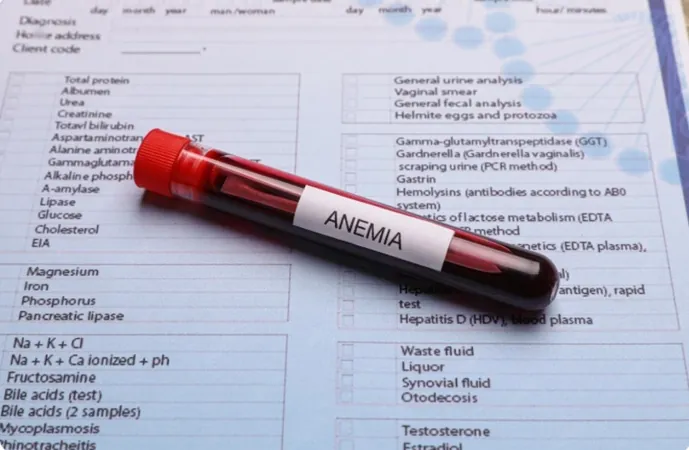
Revolutionary Digital Test Paves the Way for Early Alzheimer's Detection in Primary Care
2025-09-15
Author: Wei Ling
Transforming Alzheimer's Diagnosis with Technology
Alzheimer's disease is the leading culprit behind dementia, and with cutting-edge treatments emerging, early and precise diagnosis has never been more critical. However, many individuals experiencing cognitive issues may not have Alzheimer's, as these symptoms can also stem from conditions like depression or fatigue.
In a groundbreaking development, researchers from Lund University in Sweden have introduced a digital cognitive test specifically designed for primary care settings, published in the prestigious journal Nature Medicine.
A Game-Changer for Primary Care Physicians
Professor Oskar Hansson, who spearheaded the research alongside Pontus Tideman, explains, "This innovative digital test allows patients to assess themselves with minimal healthcare personnel involvement, significantly enhancing primary care physicians' ability to identify individuals who require further investigation into Alzheimer's pathology."
Primary care setups often lack the resources and time to delve into potential Alzheimer's cases like specialized memory clinics can. This is where the new digital cognitive test truly shines.
More Insightful than Traditional Methods
Unlike conventional pen-and-paper assessments, this digital tool offers a comprehensive view of cognitive health, incorporating new variables previously difficult to measure. "Most people experiencing memory issues will first approach their health center for help. Our test provides an early, objective assessment of cognitive impairment linked to Alzheimer's disease." says Tideman, a doctoral student and psychologist.
Unlocking Future Diagnostics with Blood Tests
Currently, blood tests that detect Alzheimer's pathology are available only in specialized clinics. However, researchers aim to make these accessible in primary care as well, albeit selectively to avoid overwhelming capacities.
Diagnosing Alzheimer's during brief patient visits—typically 15 to 20 minutes—poses significant challenges, but digital tools are set to transform that landscape. "Our distinctive BioCog test has been evaluated in primary care, focusing on patients with cognitive complaints like memory loss," notes Linda Karlsson, a doctoral student in the same research group.
How the Test Works
Patients independently administer the digital test via a tablet, which measures key cognitive functions: memory (recalling ten memorized words), cognitive processing speed and attention, orientation (awareness of current time and date), delayed recall (retrieving remembered information), and recognition (identifying previously memorized words from a list).
By combining results from both the digital test and blood analyses, the precision of Alzheimer's diagnosis is substantially enhanced, ultimately aiming to streamline the diagnostic process for primary care doctors. This new tool not only promises to revolutionize early detection but also to improve patient outcomes in the race against Alzheimer's disease.


 Brasil (PT)
Brasil (PT)
 Canada (EN)
Canada (EN)
 Chile (ES)
Chile (ES)
 Česko (CS)
Česko (CS)
 대한민국 (KO)
대한민국 (KO)
 España (ES)
España (ES)
 France (FR)
France (FR)
 Hong Kong (EN)
Hong Kong (EN)
 Italia (IT)
Italia (IT)
 日本 (JA)
日本 (JA)
 Magyarország (HU)
Magyarország (HU)
 Norge (NO)
Norge (NO)
 Polska (PL)
Polska (PL)
 Schweiz (DE)
Schweiz (DE)
 Singapore (EN)
Singapore (EN)
 Sverige (SV)
Sverige (SV)
 Suomi (FI)
Suomi (FI)
 Türkiye (TR)
Türkiye (TR)
 الإمارات العربية المتحدة (AR)
الإمارات العربية المتحدة (AR)